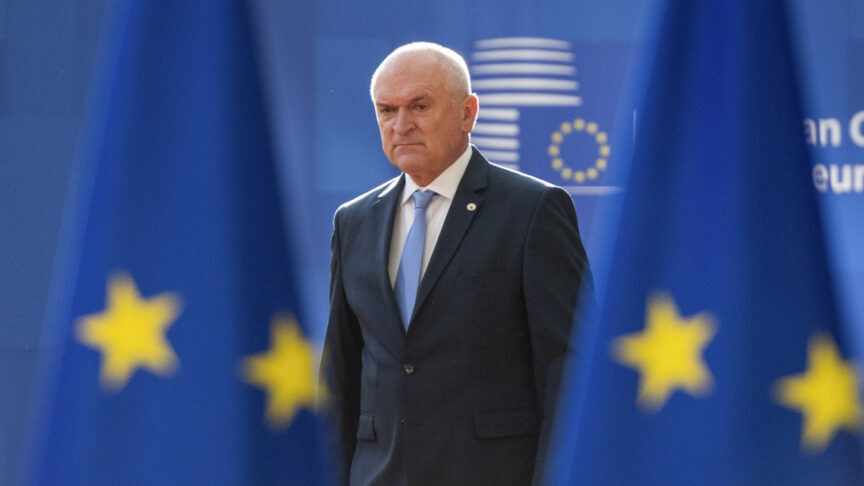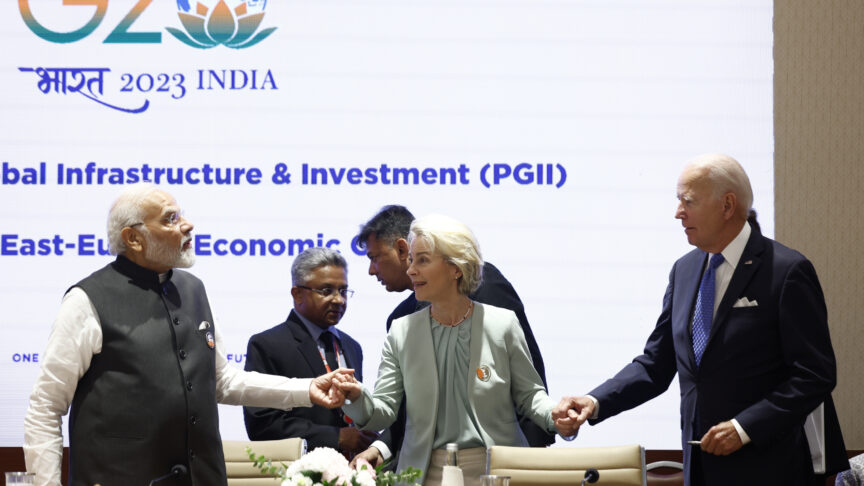Welcome to New York!
It's not easy being a European in the Big Apple ahead of UN General Assembly
Dear European Leader or Foreign Minister,
Welcome to New York! It must feel good to be in the Big Apple after all those uncomfortable meetings about the refugee crisis in Brussels. That said, many of you probably view the annual high-level meeting of the UN General Assembly with a sense of horror. The swirl of world leaders makes even the most complex EU summit look simple. This year, the Pope’s visit to New York has got everyone excited. But you should be aware that you face some familiar headaches here too:
1. You can’t escape Vladimir Putin. The Russian president is attending the General Assembly for the first time in ten years, and he is sucking up attention. It looks like he will set out new terms for ending the Syrian war when he speaks on Monday. By contrast, he will probably dodge any serious discussions over Ukraine.
Some of you will try to put him on the spot. All eyes will be on new Polish president Andrzej Duda, who will speak in between Barack Obama and Putin on Monday morning. This will be a good opportunity to throw down the gauntlet over Ukraine.
But doing so might do harm than good. The most recent ceasefire in eastern Ukraine has held for a few weeks. Why stir up trouble now? And in all honesty, the Russians are not that worried by European criticism at the UN anyway. They see the Security Council as a venue for sorting out bilateral deals with the US, as I noted in an ECFR paper this June, and will even marginalise France and the UK if they can.
2. You have a huge credibility problem over the Syrian refugee crisis. The images of refugees adrift across Europe have done the EU’s reputation significant damage at the UN. Even the cautious Secretary-General Ban Ki-moon has said he is “shocked” by images from the Serb-Hungarian border. Ban is also going to put you in a difficult position by challenging you to find more money to help Syrian refugees in Lebanon, Jordan and Turkey. The World Food Programme (WFP) has had to cut the rations it doles out in the region due to a lack of funds. Everyone expects you to talk about how painful the crisis is, and EU president Donald Tusk has lobbied for extra funds for WFP, but they suspect you can’t find the cash to solve the situation.
3. Nobody believes in the EU’s plans to deal with Libya. Compounding your general problems over the refugee crisis, the EU faces a huge amount of skepticism at the UN about its plan for military operations against people smugglers based in Libya. Russia threatened to veto a Security Council resolution authorising this plan earlier in the year. Although Moscow may have softened its stance, the three African members of the Council (Angola, Chad and Nigeria) have continued to state their objections. Ban Ki-moon has also repeatedly warned that military strikes on smugglers’ boats and bases will do more harm than good. Even if the Security Council finally votes in favor of the scheme, a lot of UN observers expect it to fail.
4. The US is judging you on your commitment to UN peacekeeping. You are sadly used to Washington complaining that you do not do enough for NATO. Now you find that the US thinks that you should be deploying more troops under the UN banner too. Over the last year, the Obama administration has argued that blue helmet peacekeepers – facing major challenges in trouble spots such as South Sudan and Mali – need reinforcements from advanced militaries like your own. Obama himself is chairing a summit on this issue on Monday afternoon, and a lot of you have received calls from the president and his advisers asking you to offer troops.
Quite a few of you are doing so. The UK indicated last week that it will send a “significant” number of troops to South Sudan (these will probably be engineers). The Netherlands and Scandinavian countries have already earned brownie points in Washington and Paris by sending personnel to Mali. An anonymous American official recently claimed that twenty European countries could pledge more units to the UN on Monday, even though the U.S. is unlikely to offer many soldiers of its own.
This is a testament to America’s continuing influence at the UN system. A lot of European generals and defense officials still view blue helmet operations with distaste after the Balkans. Some suggest that the UN nonetheless has an important role to play in tackling terrorist groups in cases such as Mali. Italy believes that the UN should send peacekeepers to Libya, and is willing to send some of its troops on such a mission. But UN officials, and many existing contributors to UN forces, worry that the organisation lacks the doctrines, capabilities and political will to run serious counter-terrorism missions. This may be a source of growing frustration in Europe.
5. Everybody suspects that you want to be the next Secretary-General (especially if you are from Eastern Europe). Come on, admit it: The thought has crossed your mind. Ban Ki-moon stands down at the end of next year. Thanks to some arcane UN precedents, there is a strong case that his successor should come from Eastern Europe. A lot of politicians from the region are running more or less openly for the job (see more on the race at “UNSG 2016”). It is still quite possible, however, that Moscow will reject anyone from Eastern Europe the US or EU could accept. That could throw open the competition to western European candidates and non-European ones. EU grandees like former Commission president Jose Manuel Barroso are said to be mulling a campaign. And if any self-respecting European leader claims that you haven’t imagined it all it, they are probably being naughty.
So you face a paradox. Right now, the UN is a pretty miserable place to be a European leader. Putin overshadows you. The refugee crisis and Libya make you look mean and weak. The US wants you to send your soldiers on peacekeeping operations that you mistrust. But if you somehow make a good impression at the General Assembly, people may start to say you should be the next Secretary-General.
At the very least, that will be good for ego. But after this dose of the nasty reality of UN politics would you really want the job? The UN is a difficult place to be European.
The European Council on Foreign Relations does not take collective positions. ECFR publications only represent the views of their individual authors.


